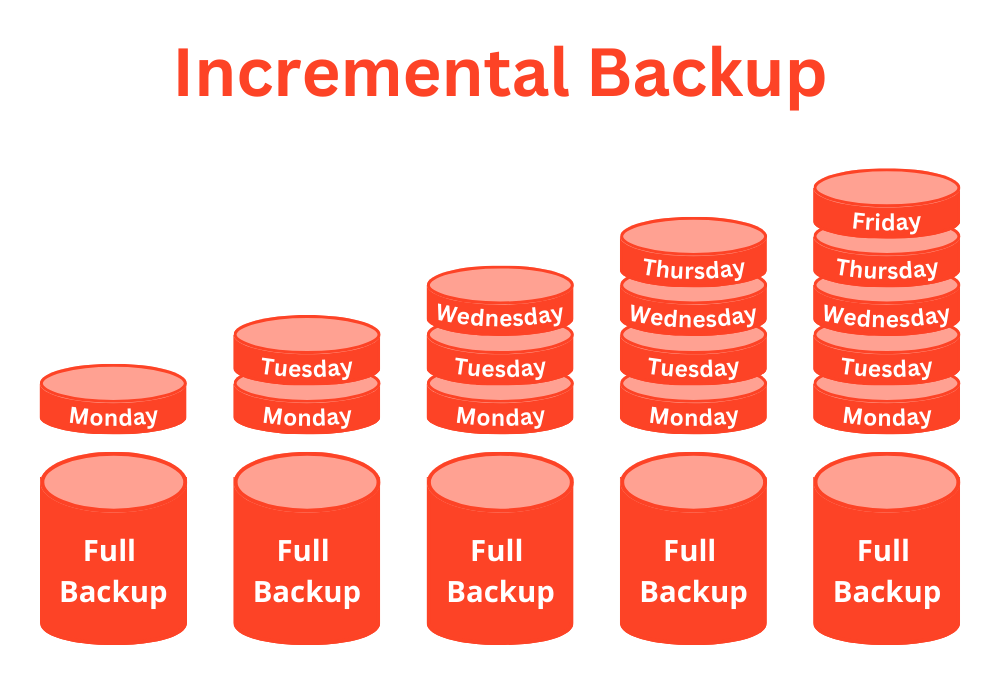The Challenges Associated with Managing Incremental Backup Archives

Managing incremental backup archives presents several challenges that organizations must address to ensure the integrity, accessibility, and efficiency of backup data storage. Some of the key challenges include:
Backup Chain Complexity: Incremental backup archives often consist of a chain of interconnected backup sets, starting with the original full backup and followed by subsequent incremental backups. Managing and maintaining the integrity of the backup chain can become complex, especially as the number of backup sets increases over time.
Retention Policy Management: Defining and enforcing retention policies for incremental backup archives can be challenging. Organizations must establish clear guidelines for how long backup data should be retained, when it should be purged, and under what circumstances data should be archived or deleted.
Storage Capacity Planning: Incremental backup archives consume storage space over time as new backup sets are created and added to the archive. Proper storage capacity planning is essential to ensure that adequate storage resources are available to accommodate increasing backup data volumes and retention requirements.
Backup Indexing and Cataloging: Maintaining accurate and up-to-date indexes or catalogs of backup archives is crucial for efficient data retrieval and management. Backup software must effectively catalog backup sets, track incremental changes, and provide comprehensive search and indexing capabilities for locating specific backup data.
Data Restoration Complexity: Restoring data from incremental backup archives can be more complex than restoring from a single full backup due to the sequential nature of incremental backups. Backup administrators must navigate through multiple backup sets and apply incremental changes in the correct order to ensure data integrity and consistency during the restore process.
Backup Verification and Testing: Verifying the integrity and recoverability of incremental backup archives requires regular testing and validation of backup data. Backup administrators must develop and execute backup verification procedures to ensure that incremental backups are reliable and can be successfully restored when needed.
Performance Impact: Managing incremental backup archives can have performance implications for backup infrastructure and storage systems. Backup software must efficiently handle incremental backup operations, minimize resource usage, and optimize storage utilization to mitigate performance impacts on production systems and backup operations.
Data Security and Compliance: Incremental backup archives may contain sensitive or confidential data that must be protected from unauthorized access, data breaches, or compliance violations. Implementing appropriate data security measures, access controls, and encryption mechanisms is essential to safeguard backup archives and ensure compliance with regulatory requirements.
By addressing these challenges and implementing effective backup archive management practices, organizations can maintain the integrity, accessibility, and efficiency of incremental backup archives, supporting data protection and recovery objectives effectively.
Thank you,